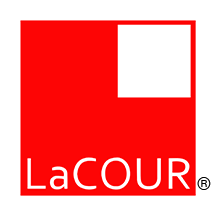The Evolution of Flexible Workspaces: Adapting to Tomorrow's Work Environment
- Feb 20, 2025
- 2 min read
The modern workplace is undergoing a significant transformation, driven by changing work patterns and the need for adaptable environments. Organizations are discovering innovative ways to optimize their spaces while enhancing employee experience and productivity.

The Rise of Free Desking
Free desking represents a strategic shift in workspace management, where employees can select their daily work location based on their tasks and preferences. This approach has gained significant traction, with research showing that approximately 25% of organizations have implemented unassigned seating arrangements, while over half are planning to adopt this model in the coming years.
Benefits of Strategic Space Planning:
Enhanced collaboration opportunities through intentional design
Optimized real estate use and cost efficiency
Improved sustainability through reduced resource consumption
Enhanced workspace organization and cleanliness
Modular Solutions for Modern Work

LaCOUR's modular furniture solutions stand at the forefront of supporting evolving workplace needs. These sophisticated systems can be readily reconfigured to accommodate various work styles and team configurations, providing the flexibility required in today's dynamic business environment.
Innovative Design Elements:
Height-adjustable workstations promoting ergonomic comfort
Integrated power and technology solutions
Sophisticated storage solutions that define space
Premium finishes that elevate workplace aesthetics
Creating Collaborative Environments
Modern meeting spaces must balance functionality with sophistication. LaCOUR's solutions create environments that support both focused work and team collaboration, with careful attention to acoustics and aesthetic appeal.
Looking Ahead
As workplace evolution continues, organizations increasingly recognize that adaptable environments are crucial for optimizing both space utilization and employee satisfaction. By implementing thoughtfully designed furniture solutions, companies can create workspaces that support current needs while remaining flexible for future adaptations.
The key to success lies in selecting solutions that align with organizational culture and work patterns while maintaining the highest standards of design and functionality. Through careful planning and implementation, these environments can foster innovation and collaboration while providing the flexibility needed for tomorrow's challenges.




Comments